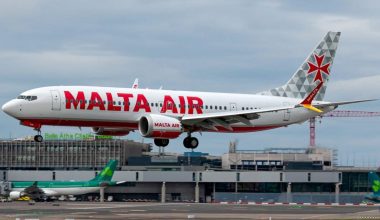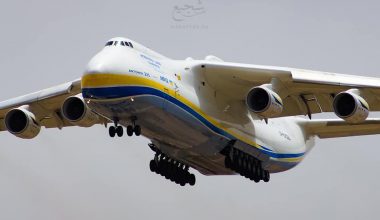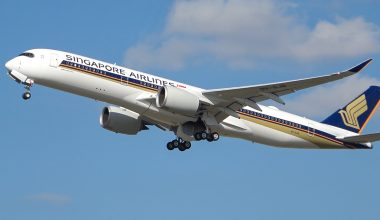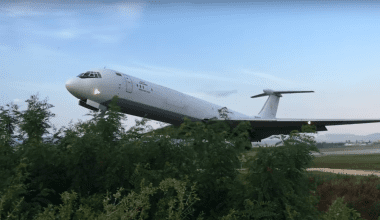In the wake of the escalating Russian invasion of Ukraine, several countries, carriers, and now airplane manufacturing companies are imposing punitive measures and severing their ties against Russia. The US aerospace giant Boeing announced that it was halting parts, maintenance, and technical support to Russian carriers as aircraft and engine manufacturers, lessors, and MRO providers with Russian operators face bans over export, sales, transfer, or even leasing of aircraft and spare parts. Airbus has become the latest company to withdraw services from the Russian aviation industry. The European aerospace manufacturer joined rival plane-maker Boeing to suspend the supply of aircraft parts and services to the airlines operating in Russia. Within 24 hours of each other, Airbus and Boeing decided to cut their ties with Russia in line with international sanctions.

Boeing’s move to stop major operations in Russia
The Seattle-based manufacturer Boeing halted major operations in Moscow, imposing temporary bans on Russian partners from acquiring sensible technical data until the US government allowed export licenses. Boeing has its own Moscow Design Center focusing on commercial airplanes engineering work, where it employs more than 1000 engineers. In addition to major engineering operations, the suspension levied by the US jet maker implies on supply of parts, maintenance, and technical support services for operators in Russia. In the statement, Boeing also informed that they had a temporarily closed office in Kyiv to ensure the safety of teammates in the region as the war continued. The severity of the invasion of Ukraine prompted Boeing to take serious actions that are set to cripple the Russian aviation sector. There are also potential payment difficulties due to new tightened SWIFT sanctions on Russian banks.
Boeing relies on Russia for the supply of crucial raw material Titanium needed to build its planes. The future of source of engineering talent, business interests in Russia, and titanium supply for current and future Boeing commercial airplanes are at stake. The Russian company VSMPO-AVISMA supplies 35% of titanium, the most compatible metal with carbon fiber composite used in structural parts of 787 and 777X Boeing airframes.
Airbus follows the cut-off line.
The European jet maker stated the suspension of support, spare parts, and services the Airbus Engineering Center provided in Russia (ECAR). It’s clear that the European Union has closed its airspace to Russian aircraft and issued prohibitory orders on export, sale, or transfer of aircraft, parts, and equipment to Russian entities. In response to the international sanctions levied by the EU commission, Airbus announced to stop sending spare items to Russian carriers, including three of the country’s biggest national airlines Aeroflot, S7 Airlines, and Rossiya Airlines. The statement also said that ECAR, a joint venture between Airbus, Systema Invest, and the Kaskol group (which employs around 200 Russian engineers), is analyzing export control sanctions on whether the engineering center could keep providing services to local customers in line with Western sanctions.
The dominance of Airbus and Boeing in the Russian fleet
Boeing and Airbus hold a dominant position and share in Russian aviation, accounting for 83% of all domestic flights from Moscow and two-thirds of total domestic scheduled flights. Among 1003 passengers and freight aircraft in the Russian fleet, Boeing and Airbus planes account for 2/3 of Russia’s aircraft, i.e., 706 (302 for Boeing and 304 for Airbus aircraft). The halting of supply of parts combined with airspace prohibitions will incapacitate aviation operations in Russia. Russian airlines will also be restricted from taking new aircraft on order, including 25 Boeing 737 Max jets to Utair and 14 Airbus A350 model set for Aeroflot. Airbus also has a backlog of around 40 A220-300 narrowbody airliners to ferry to airlines via lessors.
The repossession of aircraft, bumping of Russia from SWIFT Payment System, loss of parts and maintenance will cripple carriers of Russia. The unavailability of spare parts can ground airlines entirely once the critical parts fail. In the light of the EU’s order for EU-based lessors to terminate the pre-existing contract with Russian carriers, Western-leasing firms will also attempt to repossess aircraft from Russian operators, where leased planes on Russian grounds could be cannibalized to keep the remainder of the fleet operational.
Other restrictions
The United States has stood with Western allies to ban Russian aircraft from US airspace, including all scheduled passenger flights and cargo and charter flights. Moreover, the US export restrictions impose new license requirements for Russia to obtain necessary aircraft components. Additional tight economic sanctions are on the way to squeeze aviation in Russia.






